How Can I Avoid Being Scammed by a Moving Company?
You can avoid being scammed by a moving company by doing your research first, getting written estimates, and watching for red flags like cash-only payments or no-show movers. Moving scams are real, but they're totally preventable when you know what to look for.
This guide will walk you through the most common moving scams, show you how to spot the warning signs, and give you simple steps to protect yourself. You'll learn how to find trustworthy movers and what to do if something goes wrong.
Understanding Moving Company Scams
Moving scams happen when fake or dishonest companies trick people during one of life's most stressful times. According to the Federal Motor Carrier Safety Administration's data, a moving scam complaint is filed for 1 in every 4,000 moves in the country, and consumers who fell victim to moving scams and reported them to BBB in 2024 lost a median of $754.
These scammers know that people are busy with packing and planning, so they try to rush you into signing contracts or paying money upfront. They might seem helpful at first, but once they have your stuff or your money, everything changes.
Why Moving Scams Are So Common
The moving industry is huge, with 16,851 enterprises as of 2023 and a market size of $21.3 billion. With so many companies out there, it's easy for scammers to blend in and look legitimate.
The good news? Moving scams are projected to decline by 9% year-over-year in 2024, thanks to better awareness and enforcement. But the bad news is that the amount lost per scam is 23% higher, which is $431 per move according to recent industry analysis.
Most Common Moving Scams to Watch For
No-Show Movers
This is one of the worst scams out there. The mover "no-show" scam accounts for 26% of common moving scams. Here's how it works: A company gives you a quote, asks for a deposit, and then never shows up on moving day.
You're left scrambling to find new movers at the last minute, and good luck getting your deposit back. These scammers often use fake names and phone numbers, making them nearly impossible to track down.
Bait and Switch Pricing
The bait and switch scam starts with a really low quote that seems too good to be true. Once your stuff is loaded on their truck, they suddenly demand more money. They might say your items weigh more than expected or that you need extra services.
These scammers deliberately provide estimates 40-60% below market rate to secure your business, only to dramatically increase costs on moving day. At this point, you're stuck because your belongings are on their truck.
Hostage Loads
This is probably the scariest scam. After loading your stuff, the movers refuse to deliver it unless you pay way more than what you agreed to. Only 147 such complaints have been filed so far in 2024, compared to 204 at the same time last year, amounting to a 28% decline, thanks to federal crackdowns launched by the FMCSA.
But it still happens. They basically hold your belongings for ransom, knowing you'll pay anything to get your stuff back.
Phantom Weight Scams
In a phantom weight scam, a moving company claims that your shipment weighs more than it does and charges you higher fees based on this inflated weight. Since most long-distance moves are priced by weight, this can add hundreds or thousands to your bill.
The law says you have the right to watch your truck being weighed, but many people don't know this or don't think to ask. The Federal Trade Commission warns consumers that reputable interstate moving companies charge based on the total weight of your possessions, not inflated estimates.
Red Flags That Signal a Moving Scam
Pricing Red Flags
Watch out for these warning signs when getting quotes:
- Estimates that are way lower than others
- Quotes given over the phone without seeing your stuff
- Companies that won't give you a written estimate
- Prices that seem too good to be true (they usually are)
Payment Red Flags
The moving company does not accept credit cards and requires payments to be made by either postal money orders, direct wire transfers, or cash. Legitimate companies offer multiple payment options and don't demand large upfront payments.
Other payment warning signs include:
- Asking for more than 20% deposit
- Demanding full payment before delivery
- Only accepting cash or wire transfers
- Pressuring you to pay immediately
Company Red Flags
When you call the mover, the telephone is answered with a generic "Movers" or "Moving Company," rather than the company's name. Professional companies always answer with their business name.
Other company warning signs:
- No local address on their website
- No DOT number displayed
- Generic email addresses
- Pushy sales tactics
- Claims of being in business for decades with no online presence
How to Research Moving Companies Properly
Check Their DOT Registration
For interstate moves, interstate movers must be registered with the Federal government and have a U.S. DOT number. You can search for registered movers on the FMCSA website to check their status, complaints, and safety information.
If you're moving within your state, contact your state's consumer protection office to learn about local requirements. In Alberta, where Last Stop Moving operates, make sure your chosen company is properly licensed and insured.
Read Reviews and Check References
Don't just look at the company's website. Check multiple review sites like:
- Better Business Bureau
- Google Reviews
- Yelp
- Consumer Affairs
In 2024, over 100,000 inquiries on BBB.org were made about movers, and 718 complaints were filed with BBB against movers. This shows how important it is to check reviews before hiring anyone. The Better Business Bureau's Scam Tracker is a valuable resource for checking recent complaints about moving companies.
Verify Insurance and Licensing
Ask to see proof of insurance and licensing. Legitimate companies will happily provide this information. If they hesitate or make excuses, that's a red flag.
Getting Safe Moving Estimates
The Right Way to Get Estimates
Always get at least three written estimates from different companies. A company should look at your property in person or ask you to fully describe it before it sends the estimate.
Avoid companies that:
- Give quotes over the phone without seeing your stuff
- Refuse to provide written estimates
- Won't explain their pricing
- Rush you to sign immediately
Understanding Binding vs. Non-Binding Estimates
A binding estimate means you'll pay exactly what's quoted (unless you add services). A non-binding estimate can change based on the actual weight of your items. Some moving companies only provide non-binding estimates, which means the price can change based on the weight of your belongings on moving day.
Ask which type of estimate you're getting and get it in writing.
What Should Be Included in Your Estimate
A good estimate should include:
- Detailed list of services
- All potential fees
- Insurance options
- Delivery timeline
- Payment terms
If anything is vague or missing, ask for clarification before signing.
Protecting Yourself During the Move
Documentation is Key
Keep records of everything:
- All contracts and estimates
- Photos of your belongings before packing
- Inventory lists
- Payment receipts
- All communication with the company
Take detailed notes of your interactions with the moving company in case you need to file a complaint later.
Payment Safety Tips
- Never pay large deposits upfront
- Use credit cards when possible for fraud protection
- Avoid cash-only payments: Companies that insist on cash payments could be evading taxes or trying not to leave a paper trail
- Don't pay the full amount until delivery is complete
Moving Day Precautions
On moving day:
- The moving truck driver or foreman will try to get you to sign blank documents before beginning to load your goods - don't do this
- Check that the truck and crew match what you expected
- Don't sign anything with blank spaces
- Keep your most valuable items with you
What to Do if You're Scammed
Immediate Steps
If you think you're being scammed:
- Document everything - Keep all paperwork and take photos
- Contact the company first - Sometimes issues can be a result of misunderstandings that can be resolved immediately
- Stop payments if possible
- Contact authorities immediately
Filing Complaints
The best first step is to file a report with the Federal Motor Carrier Safety Administration by calling 1-888-DOT-SAFT or using their online complaint tool for interstate moves.
For local moves, contact:
- Your state's consumer protection agency
- Local law enforcement
- Better Business Bureau
Getting Help
If you've lost a significant amount of money, consider:
- Contacting a consumer protection lawyer
- Filing a complaint with your credit card company
- Taking the company to small claims court
Choosing a Legitimate Moving Company
What Good Companies Do
Reputable moving companies like Last Stop Moving will:
- Provide free, written estimates
- Offer multiple payment options
- Have proper licensing and insurance
- Give you time to read contracts
- Explain all fees clearly
Questions to Ask Potential Movers
Before hiring anyone, ask:
- Are you licensed and insured?
- What's your DOT number?
- Can you provide references?
- What's included in your estimate?
- What happens if something gets damaged?
- How do you handle disputes?
Services to Look For
Professional movers should offer:
- Packing services to protect your belongings
- Transparent pricing with no hidden fees
- Proper equipment and trained staff
- Insurance options
- Clear timelines and communication
Special Considerations for Different Types of Moves
Local Moves
For local moves within your city or province, you still need to be careful. Check with local authorities about licensing requirements and always get written estimates.
Long-Distance Moves
Interstate moves require DOT registration and have federal regulations. Before moving your household goods interstate, movers are required to give you the Your Rights and Responsibilities When You Move booklet.
Senior Moving
Senior moving requires extra care and patience. Make sure any company you hire has experience with senior relocations and understands the unique needs involved.
Commercial Moves
Commercial movers should have experience with office equipment and business relocations. They should also be able to work around your business schedule.
Technology and Moving Scams
Online Scams
Be extra careful when finding movers online. Scammers create fake websites and steal photos from legitimate companies. Always verify the company's physical address and contact information.
Social Media Scams
Don't hire movers you find only through social media ads. Do your research and verify their credentials before making any commitments.
The Cost of Moving Scams
Moving scams don't just cost money - they can ruin your entire moving experience. Recent industry data reveals that moving fraud cases have increased by 35% since 2024, with victims losing an average of $2,800 per incident.
Beyond the financial loss, victims often face:
- Delayed moves
- Lost or damaged belongings
- Emotional stress
- Time lost dealing with the aftermath
Prevention is Worth It
The best way to avoid moving scams is to be prepared and do your homework. Take time to research companies, get multiple estimates, and trust your instincts. If something feels wrong, it probably is.
Remember that legitimate companies want to earn your business through good service, not tricks or pressure tactics. They'll be happy to answer questions and provide references.
Final Thoughts
Moving doesn't have to be scary if you know how to protect yourself. By following these tips and staying alert for red flags, you can avoid the most common moving scams and find a trustworthy company to handle your move.
The key is to start your research early, get everything in writing, and never rush into a decision. A good moving company will respect your need to make an informed choice and won't pressure you to sign immediately.
If you're planning a move in Alberta, consider reaching out to Last Stop Moving for a free, no-pressure estimate. With proper licensing, transparent pricing, and a commitment to customer service, they represent what you should look for in a professional moving company.
Remember: your move should be the start of an exciting new chapter, not a financial nightmare. Take the time to choose wisely, and you'll be glad you did.



